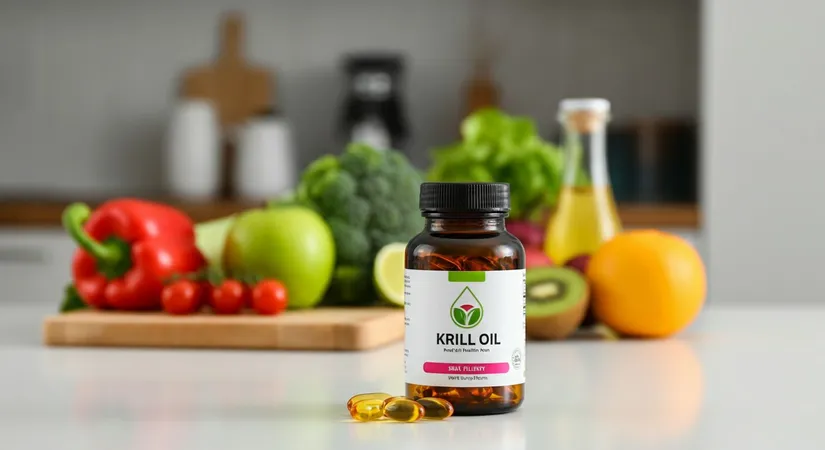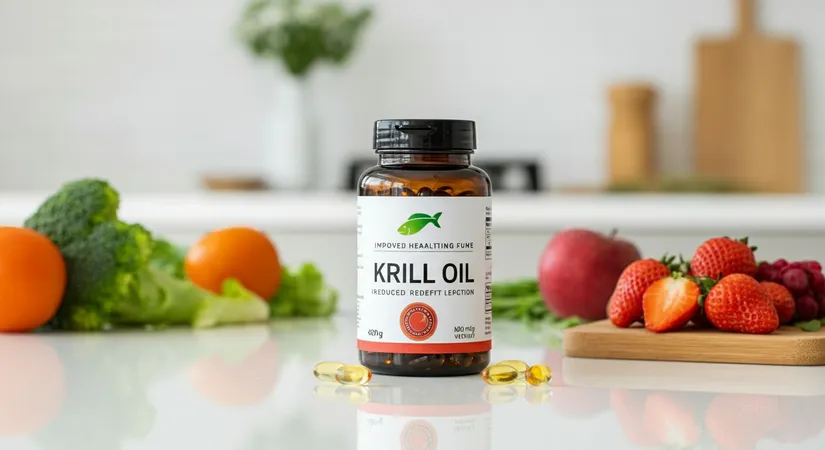The Ultimate Guide to Krill Oil Benefits and Side Effects
Explore the comprehensive guide to krill oil benefits and side effects, including its nutritional value, impact on heart and joint health, and best practices for supplementation.
Understanding Krill Oil: What Is It and How Is It Beneficial?
Krill oil is derived from tiny crustaceans called krill, which are found in the cold waters of the Antarctic Ocean. This oil is rich in omega-3 fatty acids, particularly EPA and DHA, which are essential for maintaining overall health. Unlike fish oil, krill oil contains phospholipids, which enhance the absorption of omega-3s in the body. The benefits of krill oil extend to various aspects of health, including heart health, joint health, and inflammation reduction.

Nutritional Value of Krill Oil for Overall Health
Krill oil is packed with essential nutrients that contribute to overall health. It is a rich source of omega-3 fatty acids, which are known for their anti-inflammatory properties. Additionally, krill oil contains astaxanthin, a powerful antioxidant that helps protect cells from damage. The combination of these nutrients makes krill oil a valuable supplement for maintaining cardiovascular health, supporting brain function, and promoting healthy skin.

Krill Oil Benefits for Heart Health
One of the most significant benefits of krill oil is its positive impact on heart health. The omega-3 fatty acids in krill oil help reduce triglyceride levels, lower blood pressure, and decrease the risk of heart disease. Additionally, krill oil has been shown to improve cholesterol levels by increasing HDL (good) cholesterol and reducing LDL (bad) cholesterol. These effects make krill oil a valuable supplement for maintaining a healthy heart and preventing cardiovascular diseases.
Impact of Krill Oil on Joint Health and Inflammation
Krill oil is known for its anti-inflammatory properties, which can help reduce joint pain and stiffness. The omega-3 fatty acids in krill oil inhibit the production of inflammatory molecules, providing relief for individuals suffering from conditions like arthritis. Studies have shown that krill oil supplementation can significantly reduce symptoms of joint pain and improve overall joint function. This makes krill oil an excellent choice for those looking to support their joint health and reduce inflammation.
Potential Side Effects of Krill Oil Consumption
While krill oil offers numerous health benefits, it is essential to be aware of potential side effects. Some individuals may experience digestive issues such as bloating, gas, or diarrhea when taking krill oil supplements. Additionally, krill oil may interact with certain medications, such as blood thinners, and should be used with caution in individuals with seafood allergies. It is always recommended to consult with a healthcare professional before starting any new supplement regimen to ensure it is safe and appropriate for your individual health needs.
Dosage Recommendations and Best Practices for Using Krill Oil
When it comes to krill oil supplementation, it is crucial to follow the recommended dosage guidelines. The typical dosage for krill oil ranges from 500 mg to 1000 mg per day, depending on individual health needs and goals. It is best to take krill oil with meals to enhance absorption and reduce the risk of digestive discomfort. Additionally, choosing a high-quality krill oil supplement from a reputable brand ensures you are getting a pure and potent product. Always read the label and follow the manufacturer's instructions for optimal results.
Consulting a Healthcare Professional Before Starting Krill Oil Supplementation
Before incorporating krill oil into your daily routine, it is essential to consult with a healthcare professional. They can provide personalized advice based on your health history, current medications, and specific health goals. A healthcare professional can also help determine the appropriate dosage and monitor for any potential interactions or side effects. By seeking professional guidance, you can ensure that krill oil supplementation is safe and beneficial for your individual health needs.